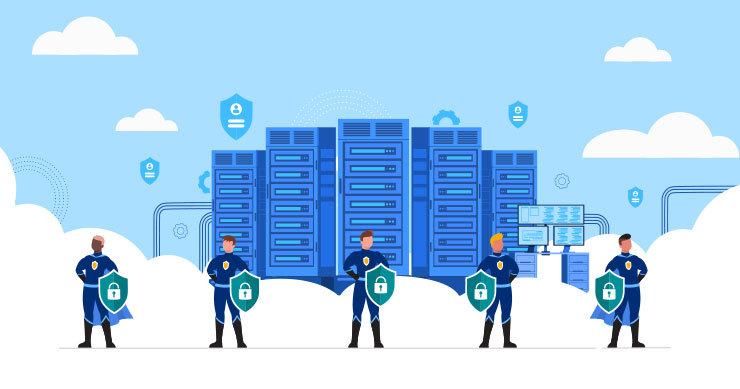The increasing prevalence of cloud computing has led to the need for strong cloud security compliance measures. As companies are shifting their operations to the cloud, protecting sensitive data from cyber threats and data breaches has become a top priority. Businesses need to understand the significance of cloud security compliance company and why it is crucial to their operations.
What is Cloud Security Compliance?
It refers to a set of regulations and standards that govern how businesses should protect data stored on cloud servers. These regulations are created to ensure the confidentiality, integrity, and availability of data stored in the cloud. They are meant to be adhered to by cloud service providers and their customers.
Some of the regulations include the General Data Protection Regulation (GDPR), the Health Insurance Portability and Accountability Act (HIPAA).
Importance of Cloud Security Compliance
Protecting Sensitive Data
Sensitive data, such as personal information about customers, financial data, and other confidential information, is stored on cloud servers. It is important to ensure that this data is protected from unauthorized access, disclosure, or modification. Cloud security compliance measures help to safeguard sensitive data, preventing it from falling into the wrong hands.
Avoiding Fines and Penalties
Businesses that do not comply with cloud security regulations can face fines and penalties. The GDPR, for example, imposes fines of up to 4% of a company’s global annual revenue or €20 million. Whichever is greater, for non-compliance. Other regulations have their own set of penalties for non-compliance. A Cloud Security Compliance Company can help businesses avoid hefty fines and legal liabilities.
Building Customer Trust
The rise of data breaches has made customers more cautious about sharing their data. Compliance with cloud security regulations shows that a business takes data privacy and security seriously. This builds customer trust and confidence in the business. This can lead to increased customer loyalty and satisfaction, and can ultimately help a business succeed in the long run.
Improving Business Operations
Cloud Security Compliance can improve a business’s operations by implementing data encryption and access controls. It can improve other security measures to protect sensitive data. This can help prevent cyber-attacks, reduce downtime, and ensure business continuity.
Compliance with regulations also ensures that businesses have comprehensive security policies and procedures in place, improving their overall security posture.
Staying Competitive
Compliance with cloud security regulations is essential for businesses that want to stay competitive in their industries. Many industries have strict compliance regulations. Businesses that do not comply with these regulations may face significant reputational damage or even legal consequences.
Compliance with regulations also shows that a business is committed to maintaining the highest standards of data privacy and security. This can be a competitive advantage.
How to Ensure Cloud Security Compliance
Understand the Regulations
The first step in ensuring cloud security compliance is to understand the regulations that apply to a business. Businesses need to know the regulations that apply to their industry and their geographical location. Compliance requirements may also change over time, so it is important to stay up-to-date on regulatory changes.
It is important to keep up-to-date with changes to regulations, as compliance requirements may change over time. Businesses need to ensure that they comply with all applicable regulations. The consequences of non-compliance might include hefty fines and legal repercussions.
Choose a Secure Cloud Provider
Choosing a cloud service provider that complies with regulatory requirements is crucial. A secure cloud provider should offer data encryption, access controls, and other security measures to protect sensitive data. Businesses should also verify that their cloud provider is compliant with the relevant regulations. It can provide certification or other evidence of compliance.
Businesses should also verify that their cloud provider is compliant with the relevant regulations. Providers may be audited and certified by third-party organizations to demonstrate their compliance. Businesses should also consider the provider’s track record and reputation for security.
Implement Security Measures
Once you have chosen a secure cloud provider, it is important to implement additional security measures to protect sensitive data. This may involve working with a security specialist to develop a comprehensive security plan. Key security precautions to take into account include:
Data Encryption: Encrypting data while it is in transit and at rest can help protect against unauthorized access. This involves converting sensitive data into a coded form that can only be deciphered with a decryption key.
Access Controls: Controls for accessibility provide restrictions on who has access to sensitive information and how. This includes requiring strong passwords, multi-factor authentication, and limiting access to only those who need it.
Regular Security Assessments: Regular security assessments and testing can help identify vulnerabilities in your security measures. This includes penetration testing, vulnerability scanning, and other assessments.
Train Employees
Employees play a critical role in ensuring cloud security compliance. It is important to train employees on best practices for data privacy and security. This includes how to identify phishing attempts and other cyber threats.
Employee training should also cover the specific security measures in place to protect sensitive data in the cloud. This includes how to use access controls, how to encrypt and decrypt data, and how to report any suspicious activity.
Monitor for Threats
Monitoring for threats is an important part of cloud security compliance. This involves monitoring cloud environments for signs of suspicious activity, such as unusual logins or attempts to access sensitive data.
Businesses should also have a plan in place to respond to security incidents. This includes notifying affected parties and identifying the cause of the incident. Taking precautions to avoid such circumstances in the years to come.
Conclusion
Ensuring cloud security compliance is essential for protecting sensitive data stored in the cloud. By understanding the regulations that apply to your business, choosing a secure cloud provider. Implementing security measures, training employees, and monitoring for threats. You can help ensure compliance and protect your data from cyber threats and data breaches.
Remember that cloud security compliance is an ongoing process. Compliance requirements may change over time, and new threats may emerge.






